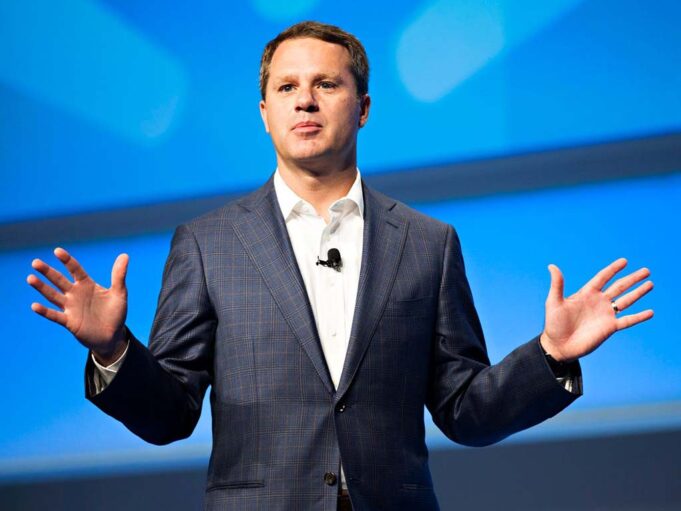Carl Douglas McMillon was born in 1966 in Memphis, Tennessee. When he was 16, his family moved to ‘the birthplace of Walmart’ — Bentonville, Arkansas.
During the summer, McMillon worked at the Walmart distribution center unloading trucks.
After graduating from the local public high school, McMillon set off for The University of Arkansas in Fayetteville. He graduated in 1989 with a bachelor’s degree in business administration.
His Instagram bio “Husband. Father. Razorback. Gadget geek. Retail lifer. Proud Walmart associate,” nods to the university’s mascot, a razorback hog known as “Big Red.”
The next year, McMillon enrolled in The University of Tulsa’s MBA programme. While completing his studies, he started working in the athletic department of a local Walmart as a buyer trainee. Soon after, McMillon made the move to the Walmart headquarters back in his Arkansas hometown.
McMillon has worked across food, apparel, home furnishing, baby food, and more, according to Bloomberg Businessweek. He worked as a general merchandise manager at Sam’s Club (Walmart’s wholesale store) and climbed to a senior VP at Walmart overseeing toys, electronics, and sporting goods.
In 2006, McMillon got his first truly high-profile job in the company, as CEO of Sam’s Club. According to The Wall Street Journal, that’s where he made his reputation by focusing on small-business owners.
Under McMillon, Walmart brought its “everyday low prices” mantra to the rest of the world. International sales outpaced US sales, growing to 29% of the company’s total. This was just one accomplishment that led to his promotion to CEO in 2014.
As CEO, McMillon has used his leadership skills beyond retail, seeking to make a positive impact on other social issues. He has been called one of the most ‘woke’ CEOs in the country and was determined ‘the most connected CEO’ by the Brunswick Group’s Connected Leaders Survey.
In 2019, Walmart announced it would stop selling e-cigarettes after vaping-related lung injuries reached a total of 530 hospitalizations and eight deaths. That year, Walmart also announced it would limit the sales of guns and ammunition in the wake of two deadly shootings at Walmart stores in El Paso, Texas, and Southaven, Mississippi.
As chairman of Business Roundtable, a nonprofit that promotes business through public policy, McMillon hopes to make an impact on businesses beyond Walmart.
The group made headlines in 2019 after announcing that ethics — not shareholders — is the driving force of successful business.
Doug McMillon participates in a Business Roundtable discussion on the”Future of Work in an Era of Automation and Artificial Intelligence”, during a 2018 CEO Innovation Summit.
Following the murder of George Floyd, McMillon condemned racial violence and pledged that Walmart would provide mentorship and funding to help advance racial equity. The company donated a total of $14 million to 16 different nonprofit organizations and set a goal to donate $100 million over five years to fight systemic racism.
During the COVID-19 pandemic, Walmart provided essential goods to low-income shoppers and helped strengthen vaccination efforts throughout the country.
In 2020, McMillon also oversaw the launch of Walmart+, Walmart Connect, express delivery, and curbside pickup at Sam’s Club. In February, McMillon urged Congress to pass another stimulus check, referencing Walmart spending data as proof that families need more money to buy essentials like groceries.
- Tinubu to ministers: Obtain presidential clearance for police escorts - December 10, 2025
- Jigawa: Between Gov Namadi and Persons with Disabilities - December 10, 2025
- Death came for the king’s seven sons, by FUNKE EGBEMODE - December 10, 2025










